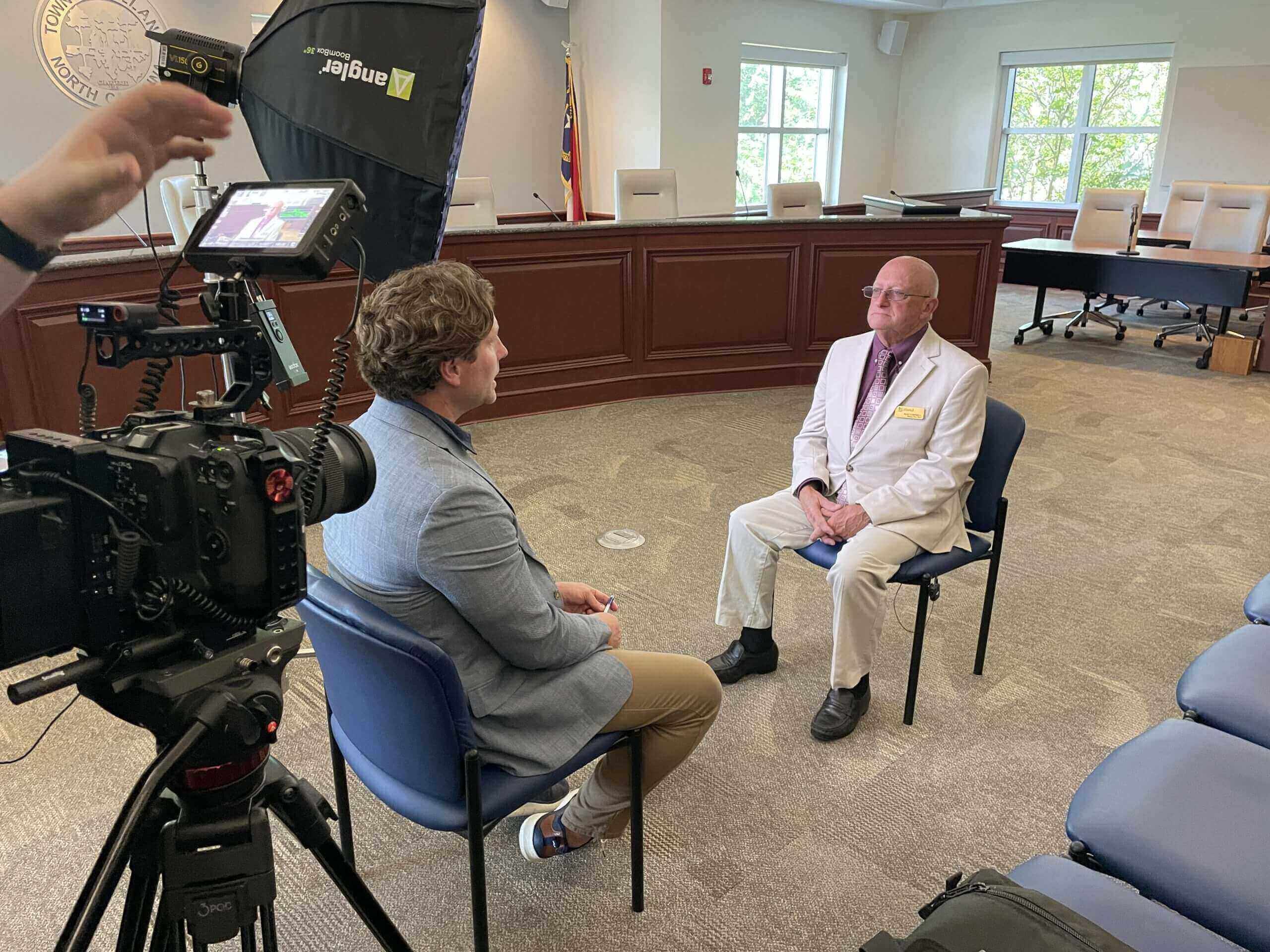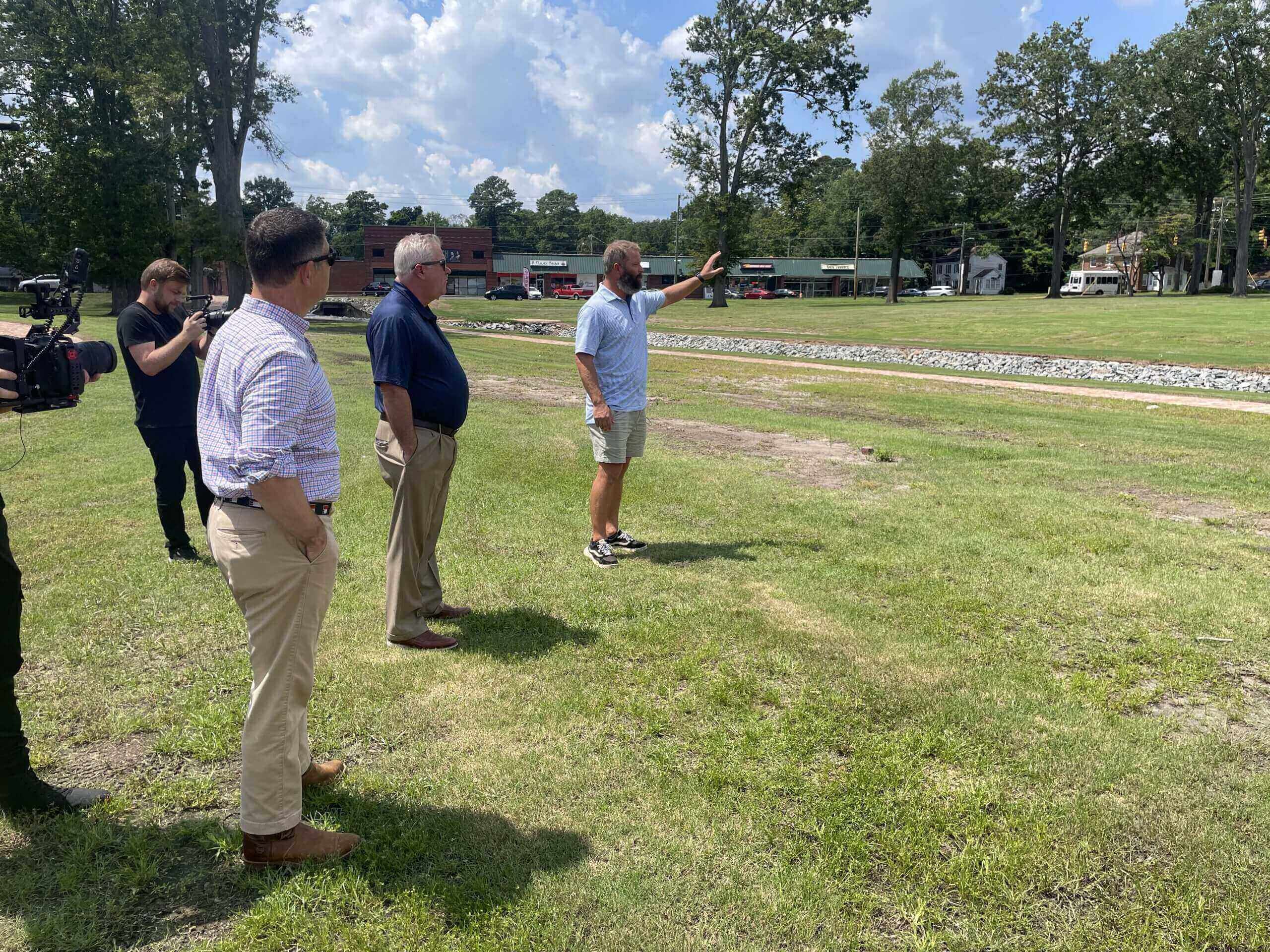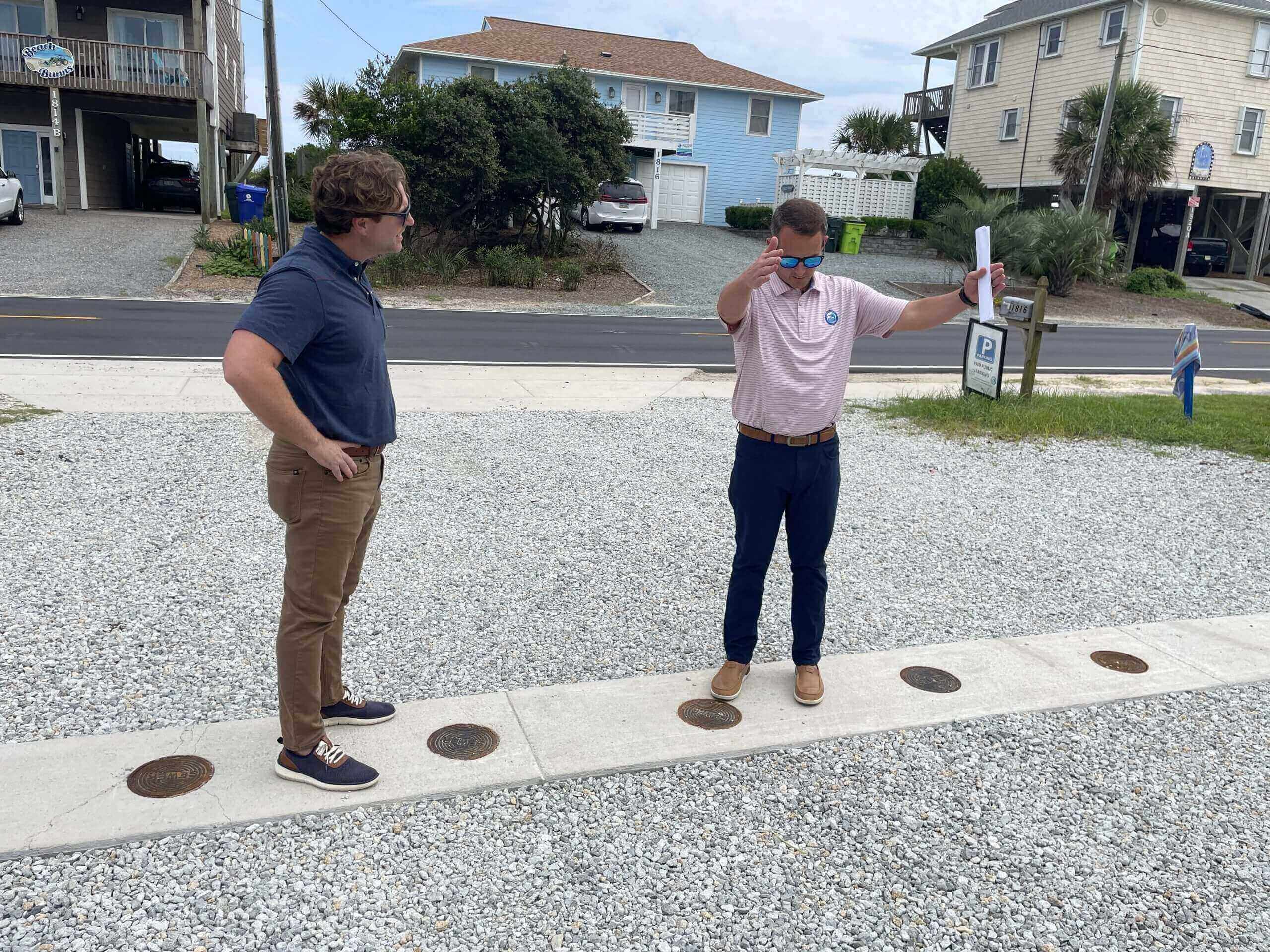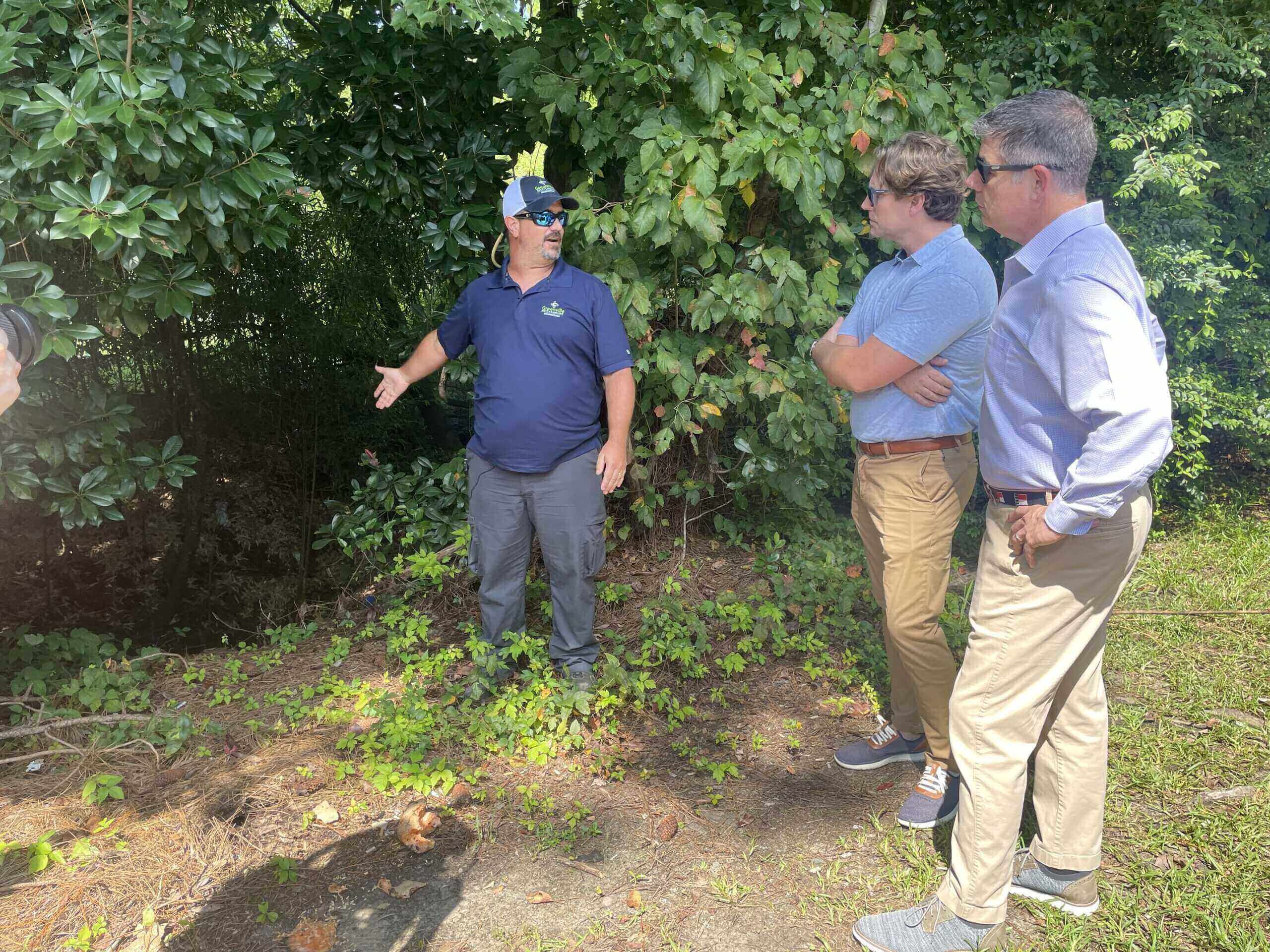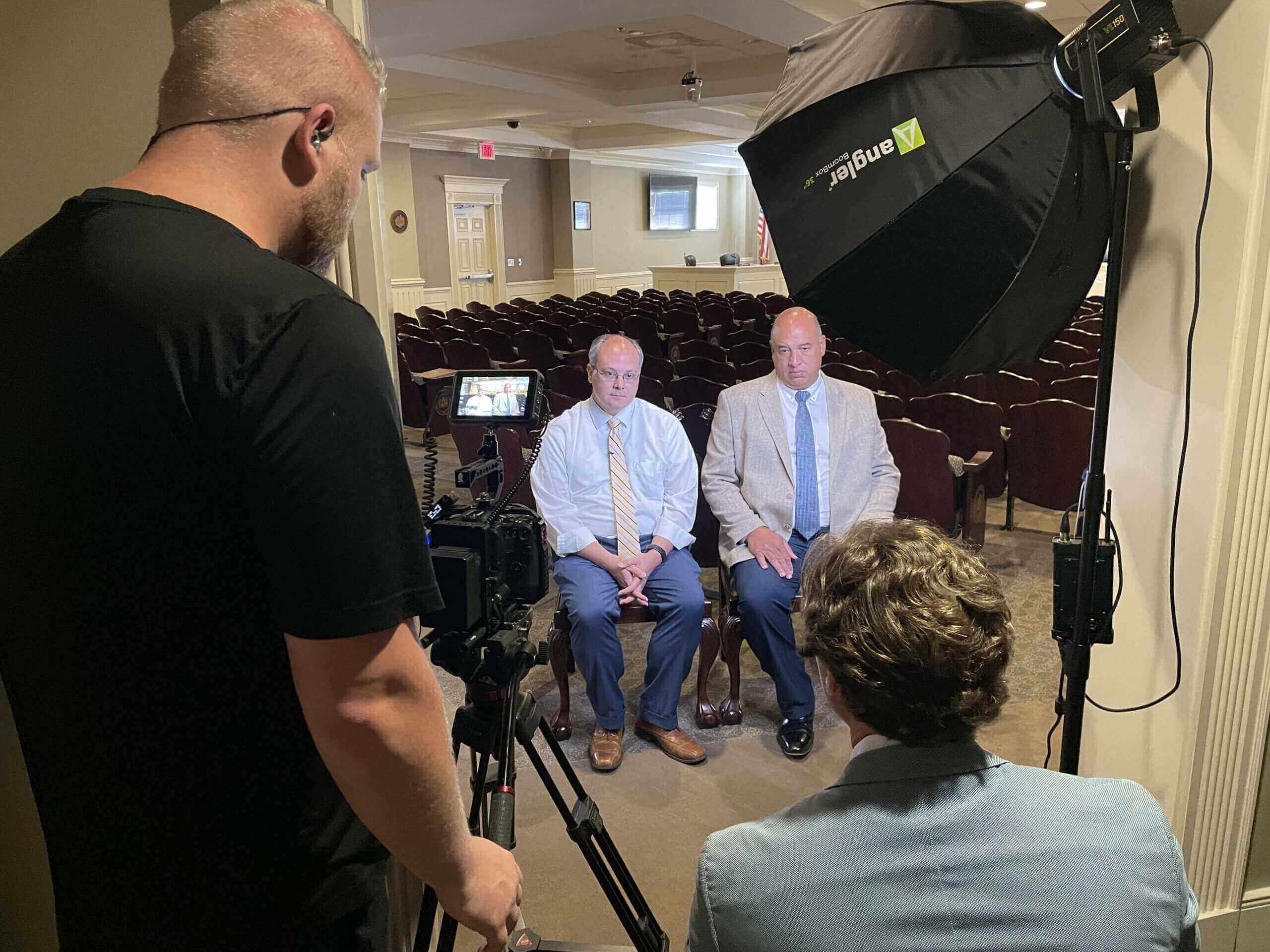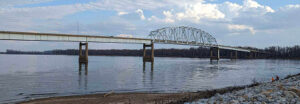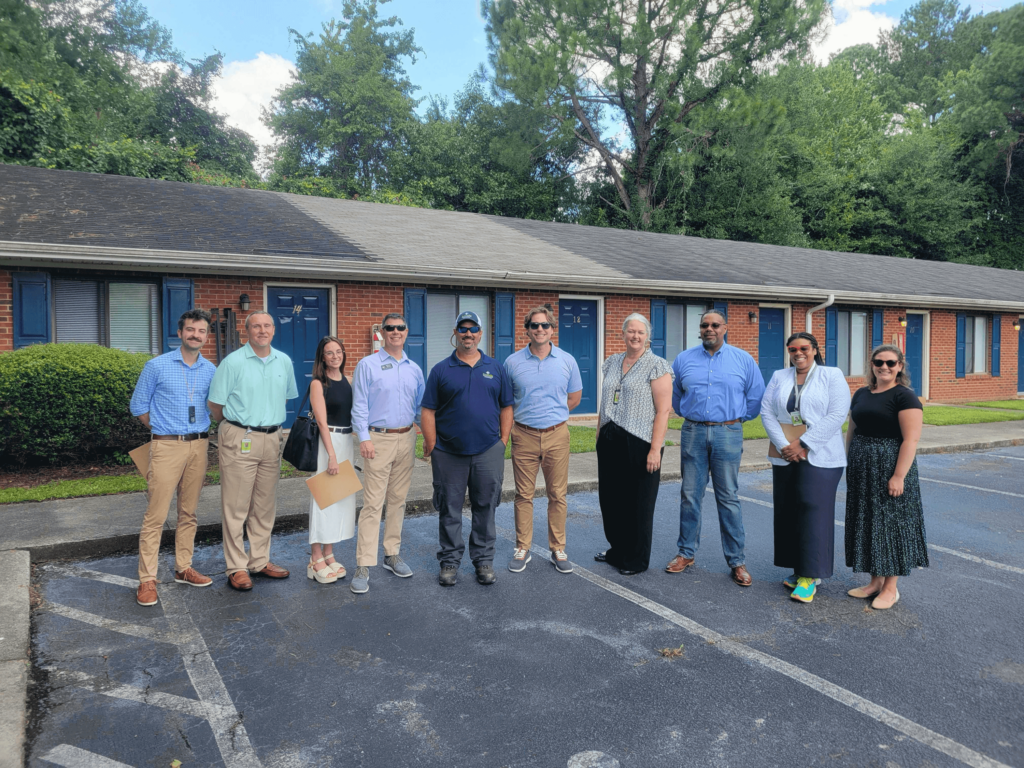Communities are preparing for a long recovery after Hurricane Helene destroyed thousands of homes and businesses.
Across North Carolina, roads collapsed and infrastructure failed as widespread flooding left residents cut off from basic goods and emergency services. Some of these same communities faced similar predicaments in 2016 with Hurricane Matthew, in 2018 with Hurricane Florence, and in 2021 with Tropical Storm Fred.
Though the recovery will undoubtedly be long, North Carolina has taken recent steps to start protecting transportation infrastructure from this type of flooding. The state’s latest budget provides $30 million to boost resilience in transportation for projects like retrofitting roads and bridges to better withstand intense rainfall and improving drainage of roads along key evacuation routes.
The American Flood Coalition believes in the importance of approaching resilience through innovation approaches like the transportation lens, an often overlooked aspect of adaptation and resilience measures. That’s why we pushed for this funding, successfully getting the legislature to double transportation funds from $15 million to $30 million.
To draw attention to and support for these state investments in resilient transportation infrastructure, the American Flood Coalition brought together local leaders and state legislators in rural communities in southeastern North Carolina to tour seven state-funded flood projects. The tour allowed local leaders to tell the story of unique flood risk and communicate the value of these projects to state legislators.
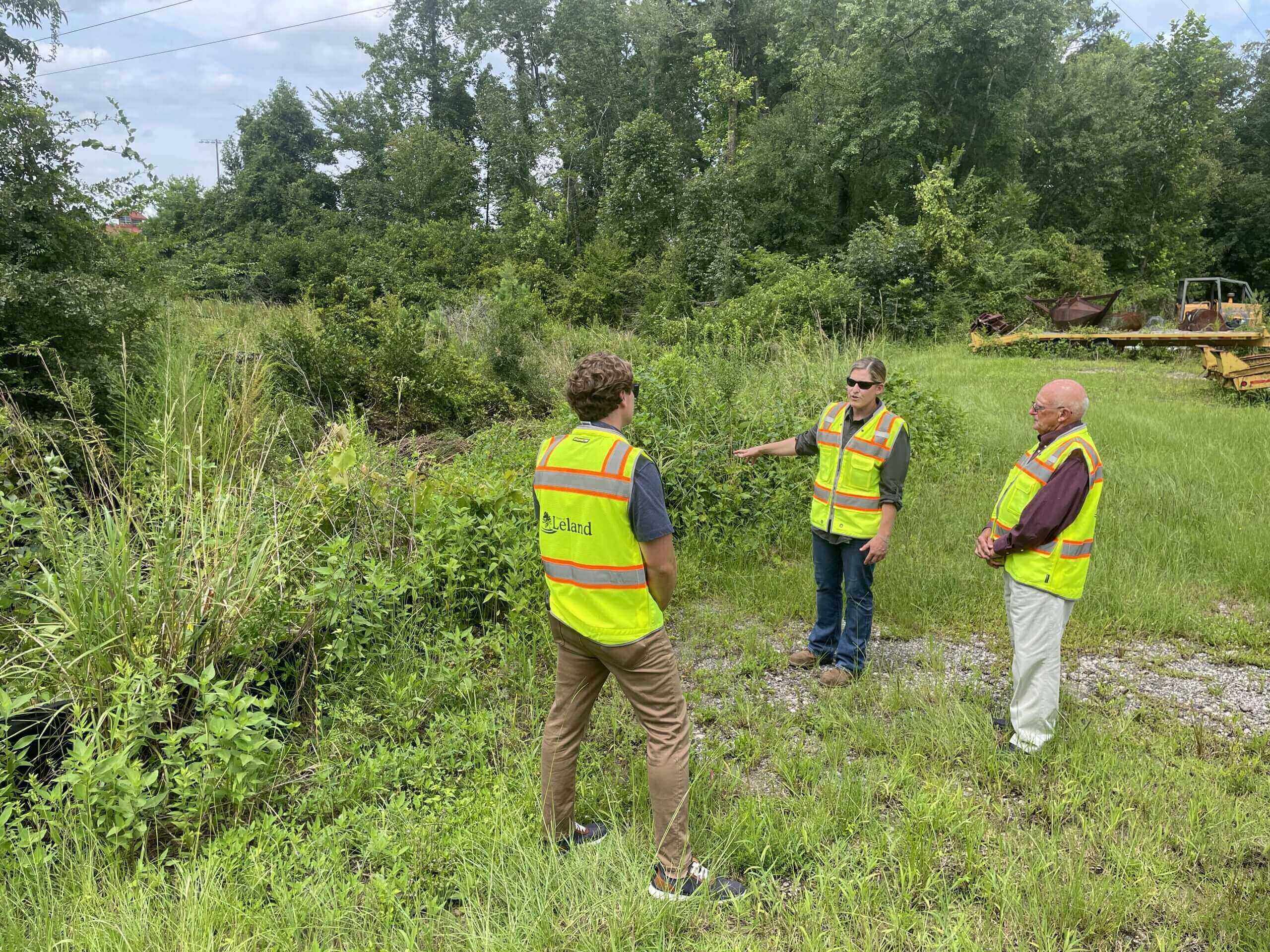
This state funding is so important because flooding is so costly. Without state funds, many rural, flood-prone communities, which have smaller tax bases and fewer resources, cannot afford projects that are needed to protect against floods of this magnitude.
“The type of infrastructure improvements and costs are so huge nowadays, that smaller communities simply can’t handle it themselves,” said Kinston Public Services Director Steve Miller, speaking to AFC near a frequently flooded stream in Bill Fay Park.
The city has received multiple rounds of state funds, including $3 million in the recent state budget, to widen this stream so that water can flow more freely.
In Leland, AFC staff and city staff visited a well-traveled roadway that connects the city to several schools. Only a week prior, the roadway flooded from rainfall remnants of Hurricane Dorian. In the recent state budget, Leland received $1 million to replace a pipe under the road with two larger box culverts, increasing the amount of water that can flow under the road during storms.
“When you look at the cost of repairing roads and building bridges, there’s no way that this town could survive without a tremendous tax increase,” said Leland Mayor Pro Tem Bob Campbell. “We are very thankful that the state is able to provide us with the money that we need, without putting such a burden on the taxpayer.”
As a convener of local, state, and federal leaders, AFC is uniquely positioned to effectively advocate for state-level flood solutions and policy. The coalition works on the ground in communities, elevating the voices and concerns of local leaders to the state and federal levels to drive change.
“The American Flood Coalition has been a great resource for us,” said North Carolina State Rep. Chris Humphrey. “When I have questions about projects or funds available for mitigation, AFC has been quick to answer and help find those resources.”
The American Flood Coalition thanks the state legislature for making available these funds and for prioritizing flood resilience across North Carolina.
More photos from the tour
